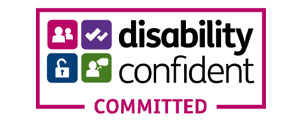Positive Action Vs Positive Discrimination
One of the first questions I am asked when discussing a recruitment campaign is ‘can you guarantee a diverse shortlist?’ To answer anything other than ‘we will do everything we can but there are no guarantees’ might be disingenuous; nevertheless, it’s hugely frustrating for councils to hear.
It is inevitable that selection panels will be disappointed with homogeneous shortlists. Countless studies have for years confirmed that genuinely diverse workforces are more creative, innovative, and produce better decisions. They also have a deeper understanding of their customers and audiences. We know that councils are persistently under the spotlight as organisations who should be getting this right.
The Black Lives Matter movement has shone a brighter light on social inequality and diversity and will be a powerful catalyst for change. For now, however, we can achieve progress together through the choices we make locally. Doing this properly means gaining clarity on some basic principles.
First, what is positive discrimination? An employer falls foul if they appoint or seek to appoint an individual based purely on a protected characteristic rather than experience or qualifications. Protected characteristics include race, gender, age, disability, religion, and sexual orientation.
It is illegal under the Equality Act 2010 to set quotas to recruit or promote a specific number of people with a protected characteristic. There are of course some occupational exceptions e.g. a women’s refuge can apply a requirement for its staff to be women.
Second, what is positive action? Positive action became legal in 2011 and comes into play when an organisation is deciding between candidates who are equally qualified. In this situation, an employer can choose to appoint an individual from an underrepresented group if they are as qualified and fit for the role as the other candidates.
Positive action can also include employers taking measures to address issues within their organisations to support employees with a protected characteristic to overcome disadvantage and discrimination.
In an effort to leave unsuccessful diversity recruitment strategies behind, many organisations are now implementing targeted development programmes for existing staff. These can be very effective in progressing fourth and fifth tier managers whilst enhancing the reputation of your organisation. Councils need not work in isolation; you could partner and work within regional clusters to develop talent and OD programmes that extend opportunity and choice for our future leaders.
As experienced recruiters we are already playing a valuable role in enhancing diversity in different sectors. Coaching and guidance on navigating unfamiliar recruitment processes is a small part of the puzzle but has enormous impact in helping to fulfil potential.
To find out more contact penny.ransley@starfishsearch.com
Leadership journeys, expertly navigated
Top Talent: Regeneration and Growth
The growth and infrastructure agenda remains central to the government’s mission, and local authorities across the country are key drivers.
Mastering the Chair and Chief Executive Partnership: Insights from Our Latest Webinar
We recently hosted the second session in our Aspiring Chief Executives webinar series, focusing on a crucial theme for any leader entering the charity sector: Mastering the Chair and Chief Partnership. The session, led by our own Louise Beales, Prinicpal Consultant, and special guest Ciara Eastell, an experienced charity CEO, Chair, and coach, both provided a wealth of practical advice for those stepping into executive roles, especially within non-profit and charitable organisations.
Mastering the Chair/CEO Partnership: Your First 100 Days and Beyond – A Starfish Search Webinar
Starfish is dedicated to supporting leaders at every stage of their journey and we know that one of the hardest steps is how to go about finding the right opportunity, and what to expect when you get your first chief executive role. We are pleased to be running a webinar for our new Aspiring Chief Executives programme.
ACCREDITATIONS


ESPO is a public sector owned professional buying organisation (PBO), specialising in providing a wide range of goods and services to the public sector for over 40 years. Starfish Search has been awarded a place on ESPO’s Strategic HR Services framework (3S). Services we offer under the framework include: Lot 1, Executive and Managerial Interim Recruitment Lot 2, Executive and Managerial Permanent Recruitment.


Starfish are proud to be certified Disability Confident Committed. This scheme provides employers with the knowledge, skills and confidence needed to attract, recruit, retain and develop disabled people in the workplace.


Crown Commercial Service supports the public sector to achieve maximum commercial value when procuring common goods and services. In 2020/21, CCS helped the public sector to achieve commercial benefits equal to £2.04bn - supporting world-class public services that offer best value for taxpayers. Starfish Search has been named as a supplier on Crown Commercial Service’s Executive and Non-Executive recruitment. Services we offer under the framework include: Lot 3 - Non-Executive and Public Appointments.


Bloom, launched in 2012 is the UK’s leading marketplace for professional services. They provide an end-to-end solution for the procurement, contract management and payment of all professional services, via the compliant NEPRO³ framework. Their public sector clients have access to 20 professional services categories and over 4500 accredited suppliers. Bloom provides swift routes to market via either direct award or mini competition. Starfish is an accredited supplier to BLOOM; our services can be accessed via this framework - Executive and Non-Executive Search and Interim Management.
Join the starfish team
We hire people who bring insight, integrity and ambition to their work. If you’re ready to contribute to shaping the future of leadership and you want to explore our current opportunities please get in touch.
